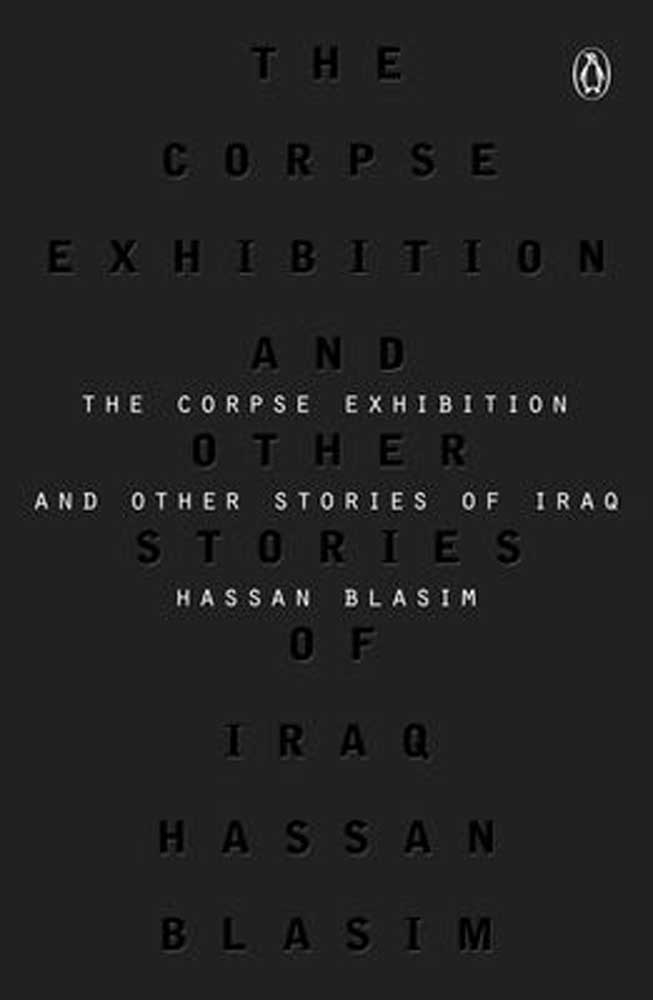An Iraq blasted open, framed from the inside
Published 12:00 am Sunday, February 2, 2014

- An Iraq blasted open, framed from the inside
“The Corpse Exhibition: And Other Stories of Iraq”by Hassan Blasim, translated by Jonathan Wright (196 pgs., Penguin Books, $15)
The literature of American warfare tends to land in overlapping waves, like an invasion. First come the novels by the war correspondents. Then, in time, fiction begins to arrive from the returning combatants. Only later, like cries of the wounded after a barrage subsides, can the other side finally make itself heard.
To speak of opposing sides amid the asymmetric warfare of Iraq, of course, makes as much sense as talking about strategy in the trenches of World War I. There are no sides and no front in the Iraqi exile Hassan Blasim’s arresting, auspicious story collection “The Corpse Exhibition,” only paranoid top dogs and desperate bottom feeders. The Iraq of Blasim, who was born in Baghdad in 1973 and now lives in Finland, was burning long before other forces showed up, jerrycans of kerosene sloshing, to douse the flames. Iranians and Americans, spear carriers in somebody else’s play, barely appear in these stories at all.
Culled from Blasim’s two award-winning collections published in Britain, and subtitled (not without stateside calculation) “And Other Stories of Iraq,” “The Corpse Exhibition” heralds a writer whose promise deepens as the book progresses. Blasim peoples his first few stories here with violent Iraqi young men, who count life cheap.
They boast, kill, watch movies, even discover good books with that casual fatalism recognizable among futureless teenagers, both abroad and at home. Several of these stories and characters come to abrupt, often absurd, ends.
The collection takes its title from its opening story, a bureaucratic spiel from a terrorist middle manager who wouldn’t be out of place in one of George Saunders’ workplace nightmares. As with many of the stories here, a somewhat askew framing device brackets the action, raising doubts about the reliability, even the reality, of what’s going on. Yes, more than a few stories here are, unhappy phrase, about storytelling.
Still, after “The Corpse Exhibition” — a more satisfying book title than title story — the collection improves, with a couple of uncontested keepers, “An Army Newspaper” and “Crosswords,” coming soon afterward. Sharp, tragicomic moments in these consecutive, not-quite-ghost stories persist in memory. Here’s the narrator of “Crosswords,” describing a bombing at a magazine office:
“The windows shattered, and the cupboards fell on top of him. His mouth filled with blood. He spat out teeth and indistinctly heard the screams of his colleague, the editor of the New Woman section.”
The prose here, at least in Jonathan Wright’s translation from the Arabic, is fine but not world-beating. Elsewhere in the story, the phrase “lifeless corpse” appears twice — which, even in a character’s voice, rather than Blasim’s, is at least once too many. But along comes that detail about the New Woman section, and we forgive Blasim everything.
A few good stories later, the collection takes another leap forward in “The Song of the Goats,” a cunning gem that places another of Blasim’s nameless, feckless narrators in the anteroom of a radio game show, where he competes with other traumatized Iraqis to see who can tell the most horrific anecdote. The contestants soon try to top one another, with one heard to mutter: “That’s a story? If I told my story to a rock, it would break its heart.”
Is Blasim suggesting the complicity of writers like himself, who transmute the deaths of their countrymen into literary fiction for self-congratulatory Western readers tough enough to take it? If a short story could break the heart of a rock, this might just be the one.







